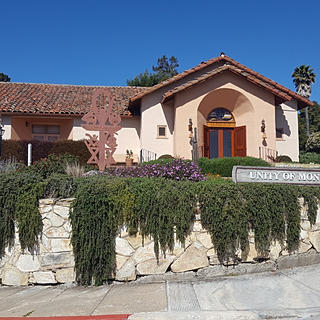Rev. Vicky's Message March 16, 2023
- M Price
- Mar 18, 2023
- 2 min read
Last weekend I attended (along with MaryAnn and Sue, representing
our Leadership Council) a Unity West Central Region Key Leader
Training on Learning to Express Oneness in the World.
The Saturday portion of the training was focused on understanding
and living true inclusivity in our spiritual communities and our
personal lives which, among other things, involves learning to
courageously live with a level of discomfort as we learn how to more
fully open ourselves to hearing and honoring the diverse stories of
people whose life-experiences are significantly different from ours.
Our Leadership Council will be exploring how the insights we gained
might inform our UMB community’s intentions, policies and practices
around inclusivity. (We will also be sharing our relevant thoughts and
proposals with our larger community, as we proceed.)
In the meantime, I came across this relevant opinion piece in the
Washington Post that I found thoughtful and inspiring. I hope you do
as well.
Washington Post Opinion: A son kneels for the anthem. A father
raises the flag. Both are patriots. By Theodore R. Johnson,
Contributing Columnist, March 8, 2023.
One morning many years ago, my young son wondered why our car
was idling in the middle of the road. “What’s wrong?” he asked from
the back seat. We were on a military base, and everyone had
stopped. I caught his eyes in the rearview mirror, just beyond the
gold oak leaves on my uniform. “Nothing’s wrong," I answered. "The
national anthem is playing.” He looked out the window, furrowed his
brow, and nodded once his ear caught the familiar melody.
Now a teenager, my son wore his own uniform of jersey and pads at
a recent high school football game. While I stood at attention in the
stadium bleachers, he knelt on the field as the anthem played.
As many athletes and others had done for years, he took a knee
during the anthem to protest police brutality, especially against Black
Americans. And as a dreadlocked Black teen coming into his own,
his decision to kneel was as personal as it was political.
From the next section of bleachers, I heard scoffs coming from a
man who was nudging his wife and motioning toward my son. The
couple shook their heads in annoyance. Their faces dripped with a
holier-than-thou animus. Then, as the anthem concluded and the
players huddled for their pregame ritual, the team’s American flag
tumbled from its bracket on the sideline fence and fell on the ground.
My military training kicked in, and I bounded down the bleachers to
repost it.
The same man who had sneered at my son stepped into the aisle as
I climbed back to my seat. “Appreciate you doing that for us, for
respecting the flag,” he said. He couldn’t have known the parental
fire burning in me over the hateful looks he had shot at my child.
Another part of me was indignant: What did he mean by “us”? It
wasn’t clear that “us” included me; indeed, his demeanor suggested
that my action was more a service rendered to him and his family,
rather than something we all shared — my son included. I kept my
cool, sidestepped him with a nod, and focused on enjoying the
game.
This moment of Americana stays with me because it’s symbolic of
how uncomfortable we are as a society when pride coexists
alongside reckoning.
Namasté,
Rev. Vicky














Comments